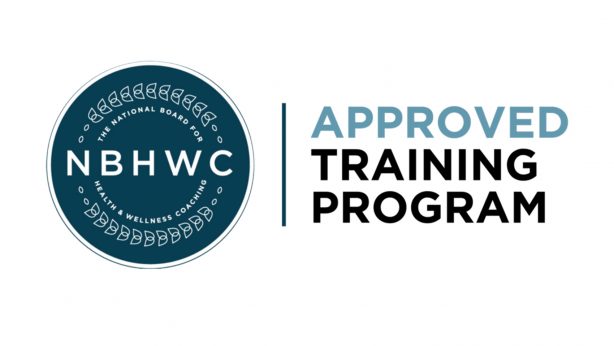
These two terms are often confused by us to be the same but there are stark and distinctive differences between the two. The professionals are different and cater to the different sections of individuals. People are much more aware and conscious of their health and well-being. They take care of their physical as well as mental health. The right diet forms an important part of overall health and thus professionals like nutritionists and dietitians come into the picture. It’s essential to understand the differences between a dietitian and a nutritionist and their various methodology of work.
Nutritionist
A nutritionist is a health professional who looks after the dietary needs of a section of the broader community of the population band to promote optimal health and well-being. The role of a nutritionist may work in various settings, including hospitals, clinics, community health centers, schools, and private practice.
Dietitian
Dietitians work one-on-one with clients. The role of a dietitian is to provide comprehensive care and support to individuals in achieving their nutrition-related goals. Dietitians are registered and regulated professionals, ensuring high standards of practice and adherence to ethical guidelines. These professionals are certified to treat clinical diseases.
- Education and Training:
- Nutritionist: The term “nutritionist” is not regulated in many countries, including the United States. In some cases, individuals may use the title “nutritionist” after completing a short-term certificate program or online course in nutrition. However, the level of education and training required to become a nutritionist can vary widely, and there are no standardized educational requirements or licensure processes.
- Dietitian: Dietitians, on the other hand, undergo extensive education and training to become registered dietitians (RDs) or dietitian nutritionists (RDNs). In the United States, dietitians must complete a bachelor’s degree in dietetics or a related field, which includes coursework in nutrition, biology, chemistry, and food science. They must also complete a supervised internship program accredited by the Accreditation Council for Education in Nutrition and Dietetics (ACEND) and pass a national examination administered by the Commission on Dietetic Registration (CDR). Additionally, many states require dietitians to obtain licensure or certification to practice.
- Scope of Practice:
- Nutritionist: Since the term “nutritionist” is not regulated, individuals who identify as nutritionists may have varying levels of expertise and may provide a wide range of services related to nutrition and wellness. However, without standardized education and credentialing requirements, it can be challenging to assess the qualifications and competence of nutritionists.
- Dietitian: Dietitians are trained healthcare professionals with expertise in nutrition and dietetics. They are qualified to provide evidence-based nutrition counseling, assess nutritional needs, develop personalized meal plans, and educate individuals and groups about healthy eating habits. Dietitians work in various settings, including hospitals, clinics, community health centers, schools, long-term care facilities, and private practice. They collaborate with other healthcare professionals to manage medical conditions, such as diabetes, heart disease, obesity, eating disorders, and gastrointestinal disorders.
- Regulation and Credentialing:
- Nutritionist: In many countries, including the United States, the title “nutritionist” is not protected by law, meaning that anyone can call themselves a nutritionist regardless of their education or training. As a result, there is no standardized credentialing process for nutritionists, and the quality of services provided by nutritionists can vary widely.
- Dietitian: Dietitians are regulated healthcare professionals who must meet specific education, training, and credentialing requirements to practice. In the United States, dietitians must be registered with the Commission on Dietetic Registration (CDR) and may use the titles “Registered Dietitian” (RD) or “Registered Dietitian Nutritionist” (RDN). To maintain their registration, dietitians must complete continuing education requirements and adhere to a code of ethics and professional standards.
- Clinical Practice and Medical Nutrition Therapy:
- Nutritionist: Some nutritionists may offer general nutrition advice and guidance on healthy eating habits, weight management, and wellness promotion. However, without formal education and training in medical nutrition therapy (MNT), nutritionists are not qualified to provide nutrition counseling for the management of medical conditions or to work in clinical settings.
- Dietitian: Dietitians are trained to provide medical nutrition therapy (MNT) to individuals with various medical conditions, including diabetes, cardiovascular disease, renal disease, gastrointestinal disorders, food allergies, and eating disorders. They assess nutritional status, develop individualized nutrition care plans, monitor progress, and make recommendations to optimize health outcomes in collaboration with healthcare teams.
- Evidence-Based Practice:
- Nutritionist: While some nutritionists may base their recommendations on evidence-based research and guidelines, others may promote fad diets, unproven supplements, or pseudoscientific approaches to nutrition and weight loss. Without formal education and training in nutrition science, it can be challenging for consumers to differentiate between credible nutrition advice and misinformation.
- Dietitian: Dietitians adhere to evidence-based practice guidelines and use scientific research and clinical expertise to inform their nutrition recommendations. They stay updated on the latest research findings and translate evidence into practical, individualized nutrition interventions to support optimal health and well-being.
Types of Dietitian
Dietitians specialize in various areas of nutrition and dietetics to meet the diverse needs of individuals and communities. Some common types of dietitians include:
- Clinical Dietitians: Work in hospitals, clinics, and healthcare facilities to provide medical nutrition therapy to patients with various medical conditions, such as diabetes, heart disease, gastrointestinal disorders, and cancer.
- Community Dietitians: Focus on promoting public health and wellness through nutrition education, outreach programs, and policy advocacy in community settings, schools, public health departments, and non-profit organizations.
- Sports Dietitians: Provide nutrition guidance and meal planning for athletes and active individuals to optimize performance, enhance recovery, and prevent injuries.
- Pediatric Dietitians: Specialize in nutrition care for infants, children, and adolescents, addressing growth and development, feeding issues, and pediatric medical conditions.
- Geriatric Dietitians: Focus on nutrition care for older adults, addressing age-related nutrition concerns, chronic diseases, and dietary modifications to support healthy aging and quality of life.
Read More: Life Coach vs. Therapist: What’s the Difference?
Dietitian vs nutritionist depends on your specific needs and goals. If you’re seeking general guidance on healthy eating habits and wellness promotion, a nutritionist may suffice. However, if you have specific medical conditions, such as diabetes, heart disease, or food allergies, or if you require personalized nutrition counseling and meal planning, a dietitian would be the better choice. Dietitians have specialized training in medical nutrition therapy and are qualified to provide evidence-based nutrition advice for managing medical conditions and achieving optimal health outcomes.


